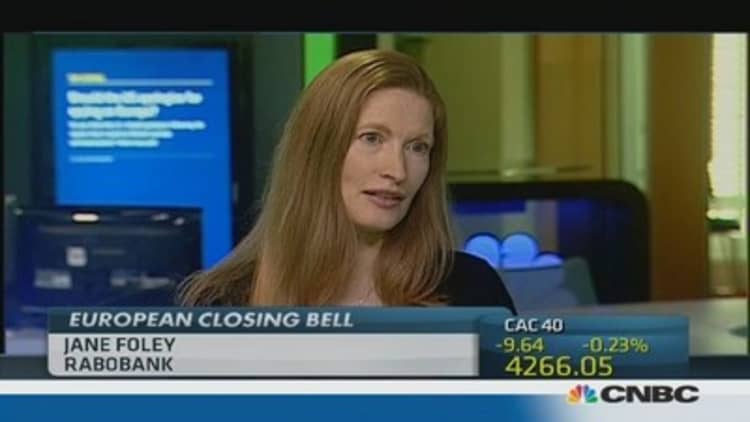The euro is only set to get stronger this week, according to currency analysts, with the dollar weakening further against the single currency as the U.S. Federal Reserve is poised to put delay "tapering" its bond-buying program.
The euro was trading at 1.3808 against the dollar on Monday morning, its highest level for nearly two years and testing resistance at the $1.3830 mark. According to Kit Juckes, global head of foreign exchange strategy at Societe Generale, the euro's buoyancy looks set to continue for some time.
"Relative rates and lack of risk-aversion in Europe are supporting the euro," he said in a morning note on Monday. Any bear-ish hopes that a round of surprise bad economic news will shake the euro into a downside spin are set to be disappointed, Juckes added.
Research last week from Valentin Marinov, director of FX Strategy at Citi shows that data surprises and the euro have now become decoupled. After tracking closely for the first half the year, the euro has surged higher since August whilst data has remained relatively flat.
(Read More: Dollar braces for dovish Fed, gloomy US data)
"This 'europhoria' is starting to run ahead of fundamentals," he said in a research note on Thursday.
Analysts believe that it's central bank rhetoric rather than sold data behind this trend. The dollar has slumped in recent weeks with a partial government shutdown in the U.S. and a potential debt default weighing on the currency.
The Fed is widely expected to extend its $85 billion-a-month asset purchase program when it meets on Wednesday, with the shutdown likely to hit growth data in the United States. This extra liquidity would push the dollar even lower with investors turning instead to currencies that aren't affected by quantitative easing (QE) - like the euro.
"The recent strength of the euro is not so surprising given that (European Central Bank) ECB is the only G3 central bank not engaged in QE (at least for now)," Cynthia Kalasopatan of Mizuho Bank said in a morning note on Monday.

"We think that ECB will unlikely intervene on the exchange rate for now."
When asked about stronger euro in early October, Mario Draghi, the president of the ECB reiterated that the exchange rate is not a policy target for the Bank but would pay attention to developments as a strong currency could hit price stability and growth.
A strong euro makes it harder for European firms to export their products. A issue not lost on Arnaud Montebourg, France' industry minister who said last week that he wants the European Central Bank to adjust the euro to make struggling European companies more competitive.
"Adjust the rate in our interest," he said in an interview with French daily newspaper Le Parisien on Tuesday. "The euro is too expensive, too strong and a little too German."
(Read More: Euro is 'too strong, too German': French minister)
But Montebourg is set to be left disappointed, according to Nomura currency strategist Yujiro Goto who predicts that the ECB's next meeting in Frankfurt on November 7 won't be kind on those shorting the single currency.
"We view that it is too early for the ECB to say something very strong about the euro," he told CNBC Monday. "So we think that the ECB meeting can disappoint."
— CNBC.com's Matt Clinch. Follow him on Twitter @mattclinch81


